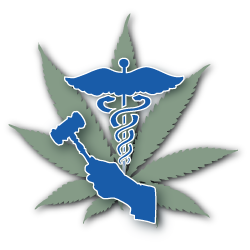

Manage Your Symptoms
http://csatc.org Compassionate Sciences Alternative Treatment Center - New Jersey Medical Marijuana Dispensary Compassionate Sciences Alternative Treatment Center is a New Jersey State-recognized designated dispensary of medicinal marijuana.


Manage Your Symptoms

Today, 23 states and the District of Columbia allow medical use.
There is considerable misinformation about medical Cannabis.
Cannabis is an alternative to pharmaceuticals with debilitating, often devastating, side effects.



LIFE Magazine, October 1969
Cannabis has been used as a medicine for centuries, with the earliest record found in the Chinese PharmacopeiaA book containing an official list of medicinal drugs together with articles on their preparation and use. of the 15th Century BC. The science of Cannabis was advanced during the 19th and 20th Centuries as more than 100 articles on the subject were published in medical journals. Cannabis was listed in the United States Pharmacopeia from 1850 until 1942 and used as a prescription for various conditions including labor pains, nausea and rheumatism.
Modern research conducted under FDA-approved protocols, including studies sponsored by federal and state governments, has documented the effectiveness of Cannabis as an antiemeticAn agent that prevents or arrests vomiting., anticonvulsantA drug that prevents or relieves convulsions. and as a treatment for glaucomaAn eye disease characterized by damage to the optic nerve due to high intraocular pressure. When the federal government ended Cannabis research in 1992, it had nearly completed the requirements for new drug approval. Federal restrictions have limited subsequent Cannabis research in the United States.
Growing abuse of marijuana and an aggressive anti-marijuana campaign by the Federal Bureau of Narcotics led to federal prohibition of possession and transfer (but not medical and industrial use) in 1932. The Controlled Substances Act of 1970 ranked Cannabis, alongside heroin and LSD, as a Schedule 1 drug with the highest potential for abuse and no accepted medical uses. In 1996, California became the first state to legalize the use of medical Cannabis.
Today, 23 states and the District of Columbia allow medical use. However, the possession and use of Cannabis in any form remains illegal under federal law. Recent federal drug enforcement policy has been not to interfere with qualified patients who use medical Cannabis in compliance with the laws of states that have legalized medical use.
There is considerable misinformation about medical Cannabis. Further research is required and is being conducted in the United States and around the world. What we do know, however, is that Cannabis is recognized by science for its well-established palliativeRelieving or soothing the symptoms of a disease or disorder. effects and is used to treat the symptoms of cancerEspecially CINV, or chemotherapy-induced nausea and vomiting., Crohn’s DiseaseAn inflammatory disease of the intestines also known as regional enteritis., epilepsy and other seizure disorders, glaucoma, multiple sclerosis, neuropathic pain, rheumatoid arthritis and .
The drug provides doctors with an alternative to pharmaceuticals with debilitating and often devastating side effects. As such, medical Cannabis is being used today in some parts of the country to provide critical palliative relief to patients suffering from a host of diseases and conditions. Ultimately, it has the potential to help millions of Americans.